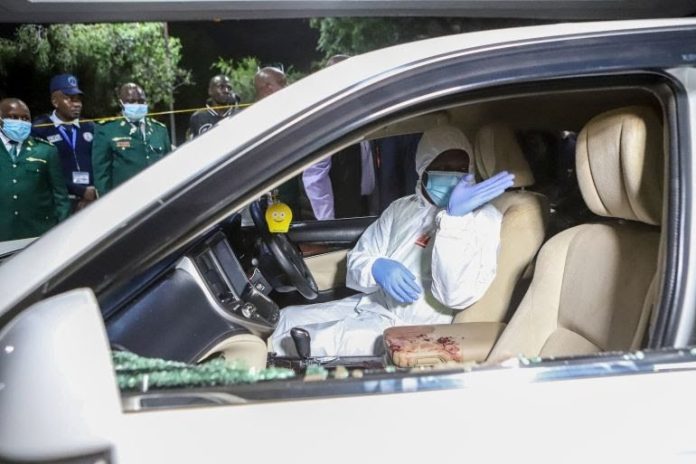Facebook Twitter (X) Instagram Somali Magazine - People's Magazine
A tragic wave of shock and mourning has swept across Kenya following the assassination of Charles Ong’ondo Were, a sitting Member of Parliament, who was shot dead in the capital city of Nairobi. The brutal killing took place on Tuesday evening as the legislator was caught in traffic along Ngong Road, one of the busiest arteries in the city.
Eyewitnesses reported that two men on a motorcycle had been trailing the MP’s vehicle for several minutes before executing their attack. When the car came to a stop at a red light, one of the assailants dismounted, approached the driver’s side window, and fired multiple shots at close range before fleeing the scene with his accomplice. The lawmaker’s driver and bodyguard were unharmed and rushed him to a nearby hospital, but he was pronounced dead shortly after arrival.
Charles Ong’ondo Were was the representative for Kasipul constituency in western Kenya. He was known as an outspoken advocate for his constituents and a committed parliamentarian. Elected in 2017 and re-elected in 2022, he had built a reputation as a passionate public servant, often vocal about issues of youth empowerment, infrastructure development, and agricultural sustainability.
The killing has sent tremors through Kenya’s political establishment. Leaders across the aisle have expressed their outrage and grief, describing the assassination as an attack not just on one individual, but on the nation’s democracy. Colleagues described Were as a man of integrity, principle, and courage. Many called for immediate action to find those responsible and to ensure such violence does not become a norm.
Security agencies have launched a full-scale investigation into what they are describing as a highly organized and deliberate attack. Law enforcement is reviewing CCTV footage from nearby buildings and collecting testimonies from witnesses to identify and apprehend the perpetrators. Initial reports suggest the assailants were professionals, pointing to a possible premeditated plot. While no motive has yet been confirmed, speculation has ranged from political rivalry to personal vendetta.
Kenya has a troubling history of political violence, particularly around election periods. However, targeted killings of sitting lawmakers are rare and stir deep fears about the safety of public servants. The assassination has reignited debates over the need for tighter personal security protocols for elected officials and prompted calls for improved policing in urban areas like Nairobi.
The incident has also brought into sharp focus the risks politicians face when taking strong stands on controversial issues. Were had recently voiced concerns about corruption, mismanagement of public funds, and the uneven distribution of development projects. Although there is no confirmed link between his political stances and his killing, many believe his outspokenness may have made him a target.
In Kasipul, residents held vigils and marches to honor their fallen leader. Many wept openly in the streets, mourning a man they considered a true son of the soil. Constituents praised his dedication and accessibility, recalling how he often walked among them, listened to their concerns, and pushed for progress even when it meant clashing with powerful figures.
The assassination of Charles Ong’ondo Were is not just a personal tragedy for his family and constituents—it is a wake-up call for the nation. It raises urgent questions about security, justice, and the lengths to which some may go to silence voices of dissent. As Kenya mourns, the pressure is on authorities to deliver justice swiftly and to ensure that the country’s political landscape does not slide further into fear and violence.

